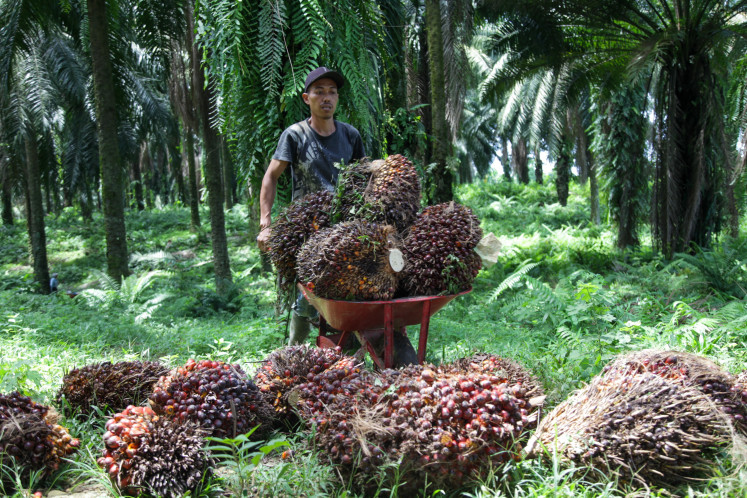Popular Reads
Top Results
Can't find what you're looking for?
View all search resultsPopular Reads
Top Results
Can't find what you're looking for?
View all search resultsGovt delays horticulture import changes
The government says it will delay plans to restrict the authorized gateways for horticulture imports to give local and overseas stakeholders a chance to comply with new rules
Change text size
Gift Premium Articles
to Anyone
T
he government says it will delay plans to restrict the authorized gateways for horticulture imports to give local and overseas stakeholders a chance to comply with new rules.
Agriculture Minister Suswono said on Tuesday in Jakarta that the plan would be implemented beginning June 19 to allow relevant stakeholders to prepare necessary infrastructure, including warehouses, cold storage and transportation, and to avert potential disruptions in horticultural product distribution.
Suswono said that the government’s plan would also permit horticulture imports through seaports in Riau Islands’ free-trade zones of Batam, Bintan and Karimun in Riau Islands to meet local demand.
The move supplements four seaports and airports that have been slated to serve as the exclusive entry points for horticultural imports: Belawan seaport in Medan, North Sumatra; Soekarno-Hatta International Airport in Banten; Tanjung Perak seaport in Surabaya, East Java; and Soekarno-Hatta seaport in Makassar, South Sulawesi.
The country’s largest port by volume, Tanjung Priok in North Jakarta, was barred from horticulture imports by officials who said that the port was overloaded, resulting in poor supervision of imported goods.
Meanwhile, Deddy Saleh, the Trade Ministry’s foreign trade chief, said the ministry would issue regulations in the next several weeks to specify the volume and schedule for horticultural imports.
“Importation cannot be done alone, without monitoring. The trade minister’s pending regulations will help supervise horticultural imports,” Deddy said.
Under a set of regulations issued in December, the number of entry points for horticultural imports was to have been reduced from eight to four starting this month.
The regulations cover 47 kinds of fresh fruits and vegetables as well as fresh-layered tuber vegetables, such as avocados, grapes, apples, apricots, strawberries, mangoes, oranges, kiwi, onions and garlic.
The rules also stipulate that the government must expand its supervision of 39 to 100 types of imported plant-originated fresh food products, covering agricultural products and food and plantation crops due to possible contamination from deadly chemicals, heavy metals, mycotoxins and microorganisms, such as E. coli and salmonella.
The Trade Ministry’s food and plants quarantine agency previously said that 15 incidents were recorded at Tanjung Priok port over the past two years where imported products were found to have been infected by unique pathogens and pests that might be harmful to local crops.
The agency also said that over the past several years, officials found a series of incidents that might have led to whitefly pest (Bemisia tabaci-Genn) outbreaks in West Java, along with the rise in imports.
Outbreaks of golden eelworms (Globodera rostochiensis), which are indigenous to South America, were also found in Central Java and East Java within the period.
Indonesia’s imports of fruits jumped by 50 percent to 878,318 tons while imports of vegetables surged by 29 percent to 746,857 tons last year.
The impact of the regulations, which will require importers to re-route their goods to the four designated gateways, has been considered troublesome.
Direct access to Jakarta would be severely disrupted by the exclusion of the Tanjung Priok Port.
Indonesia’s trading partners have raised concerns over the issue with earlier requesting the government to delay or drop the plan.
Australia reportedly asked Indonesia to submit its regulations to the World Trade Organization to allow its trading partners to submit feedback through the procedures of the trade regulating body.










